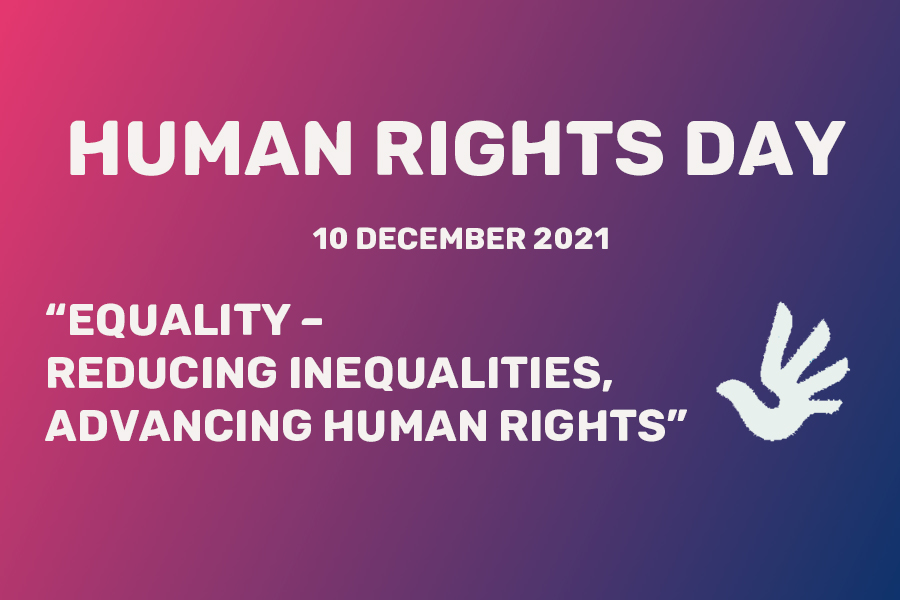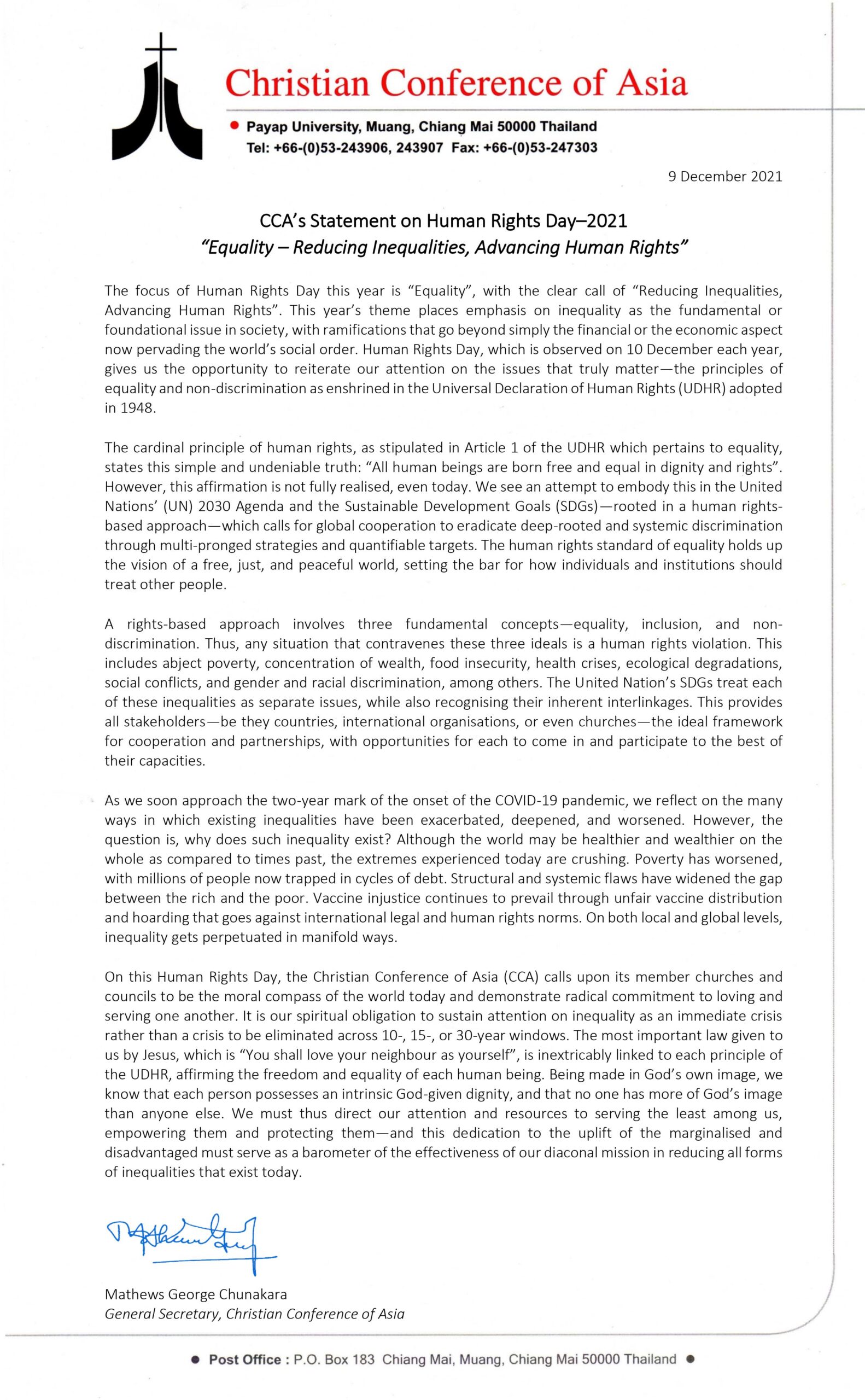CCA General Secretary calls upon member churches and councils to be ‘moral compass of the world’ on Human Rights Day–2021

CHIANG MAI: In a statement issued on the occasion of Human Rights Day, the Christian Conference of Asia's (CCA) General Secretary Dr Mathews George Chunakara called upon the CCA’s member churches and councils to be ‘the moral compass of the world today and demonstrate radical commitment to loving and serving one another’.
Elaborating on the theme of the year, ‘Equality – Reducing Inequalities, Advancing Human Rights’, the CCA General Secretary stated, “The cardinal principle of human rights, as stipulated in Article 1 of the UDHR (Universal Declaration of Human Rights) which pertains to equality, states this simple and undeniable truth: All human beings are born free and equal in dignity and rights. However, this affirmation is not fully realised, even today…The human rights standard of equality holds up the vision of a free, just, and peaceful world, setting the bar for how individuals and institutions treat other people.”
The CCA General Secretary further said that it was ‘our spiritual obligation to sustain attention on inequality as an immediate crisis rather than a crisis to be eliminated across 10-, 15-, or 30-year windows’.
The statement continues, “Being made in God’s own image, we know that each person possesses an intrinsic God-given dignity, and that no one has more of God’s image than anyone else. We must thus direct our attention and resources to serving the least among us, empowering them and protecting them—and this dedication to the uplift of the marginalised and disadvantaged must serve as a barometer of the effectiveness of our diaconal mission in reducing all forms of inequalities that exist today.”
The full text of the CCA’s Statement on Human Rights Day–2021 can be found below:











